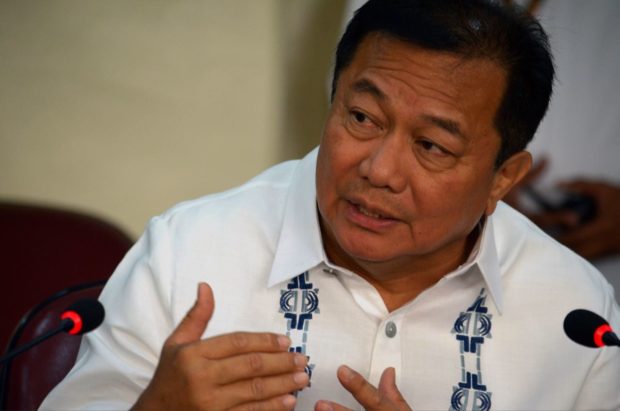Alvarez: I’m ready for Tadeco suit
DAVAO CITY — Speaker Pantaleon Alvarez said he was ready to face charges, in connection with the clearing of roads in villages inside the Tagum Agricultural Development Co. (Tadeco) banana plantation on March 5 in Braulio Dujali town, Davao del Norte.
Tadeco said it would file charges for the destruction of one of its biosecurity fences during the survey led by a private firm and aided by the Department of Public Works and Highways, Department of Environment and Natural Resources, police and Alvarez’s chief of staff, Edwin Jubahib.
“I have no problem even if I wash my face with cases,” said Alvarez in a videotaped interview with reporters at the opening of Tagum City’s Musikahan Festival on Wednesday.
House probe
Reports said several residents welcomed the clearing of the roads, which was ordered by two House committees—justice and good government—in connection with House Resolution No. 876 that Alvarez filed.
Article continues after this advertisementAlvarez accused Rep. Antonio Floirendo Jr., whose family owned Tadeco, of using his influence as a legislator to bag a contract with the Bureau of Corrections (Bucor) for Tadeco to use at least 5,000 hectares of land belonging to the Davao Penal Colony.
Article continues after this advertisementFloirendo said it was not him who signed the contract with Bucor, saying it was his father and namesake, Antonio Sr., who did so.
During the survey, some residents were seen displaying handwritten placards saying “Thank you President Duterte and Speaker Alvarez for opening the roads.”
Complaints
“We found that there are provincial roads inaccessible to the public because these were blocked,” Alvarez said in the videotaped interview.
“There had been complaints about it and we agreed that public roads should be made accessible to all,” he added.
A gate had been built at the entrance of the plantation, visible from the highway leading to Sto. Tomas town.
Alex Valoria, Tadeco president, said if the operation was just a survey, there was no need to destroy the fence which was a biosecurity barrier. —ALLAN NAWAL
